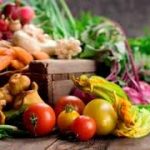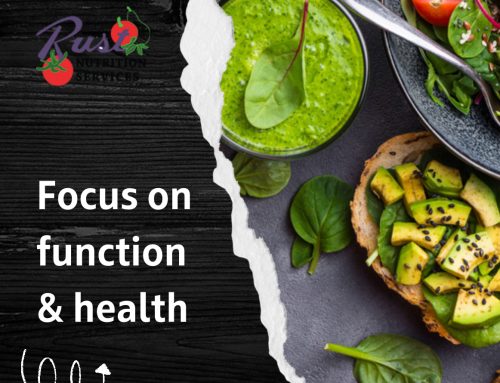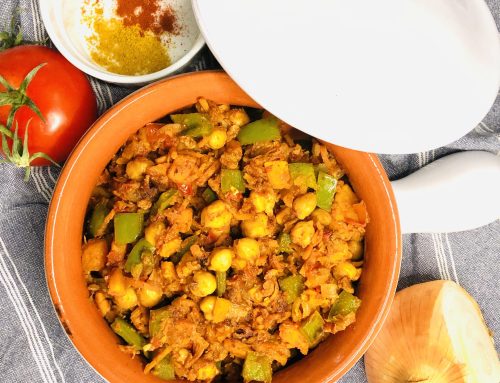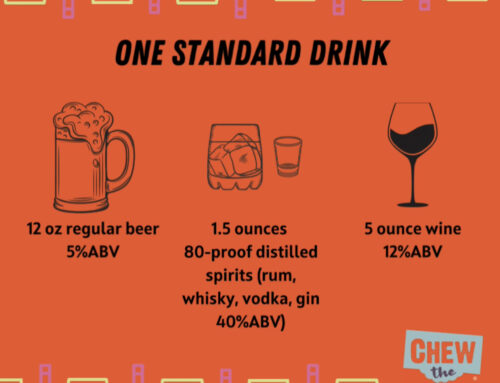 In the past, the biggest health question was “Which diet is best?” Now, in the new year, it seems that the public, and even the science community, is looking for that one magic ingredient that causes our ailments. Is it fat? Is it sugar? Is it wheat? Is it meat? Is it dairy? Is it gluten? What one thing can we abolish from our diets so we can make health improvements and maintain a healthy weight?
In the past, the biggest health question was “Which diet is best?” Now, in the new year, it seems that the public, and even the science community, is looking for that one magic ingredient that causes our ailments. Is it fat? Is it sugar? Is it wheat? Is it meat? Is it dairy? Is it gluten? What one thing can we abolish from our diets so we can make health improvements and maintain a healthy weight?
If only it were that simple. So many popular diets and diet recommendations over the past few years have focused on eliminating one ingredient, or complete food groups in an effort to achieve a healthy diet. Sugar has been the focus of many health professionals of late who are looking for ways to solve the obesity crisis. Any nutrition counselor that has seen thousands of patients or clients can tell you: No two people have the same eating habits or schedules, nor do they eat the same types of foods, nor do they have the same medical history, nor do they have the same family background. Yet they may have some of the same health “problems” (diabetes, high cholesterol, obesity) that are often associated with being overweight or eating an unhealthy diet.
Why single out sugar? Well, it would be nice to think that one simple ingredient could be the cause of our nation’s unhealthy waistlines, but so many other factors have changed health over the past century. We certainly have become more sedentary as desk jobs and technology have shoved physical labor aside. There are also many more types of junk foods on the market, as well as over-sized portions. Convenience is appealing, and though a healthy diet plan may present a challenge, it’s still doable.
You may get into a diet rut, dwelling on the negative – this can happen within any aspect of your life. I have often told clients –
“Instead of focusing on what you shouldn’t eat, focus on what you should eat.”
In other words, focus on what healthy foods you can add to your diet, not what you should remove. Rather than focus on a few ingredients, resolve to focus on your whole diet and your total nutrition.
- Add antioxidants. Brightly colored fruits and veggies are loaded with important vitamins and are a healthy addition to your diet. Antioxidants help protect your body’s cells. Look for leafy greens like spinach or kale to cook up or add to salads. You can even make a fruit-and-veggie smoothie for a refreshing way to add important antioxidants to your diet. Beans are an excellent source of antioxidants – include them on salads, or in soups and chili.
- Add lean protein at breakfast and lunch. Studies have shown, that for middle-aged folks, protein becomes even more essential to maintain a healthy diet. Research has shown that protein is best utilized when it’s spread out through the day, instead of being consumed at one evening meal. An ideal amount is about 20-30 grams at each meal. Milk, eggs, cottage cheese, ricotta cheese, or Greek yogurt can boost your breakfast protein. Choose a lean meat and vegetable at lunch as opposed to filling up on carbohydrates. Add protein to salads such as tuna, salmon, cottage cheese, beans, or chicken.
- Focus on fruit at snack time. It’s likely that your fruit intake isn’t where it should be for optimal health, so plan to enjoy fresh fruit in between meals to ensure that you get the servings that you need each day. If you’re in a banana rut, change things up a bit. Look for sale items in the produce section and treat yourself to some fresh strawberries, cantaloupe, clementines, kiwifruit or pineapple.
- Add a variety of whole grains. Try to plan and cook at least three meals at home each week, gradually increasing that goal. Grains like quinoa, brown rice, wild rice or barley are easy to prepare and can be eaten as healthy leftovers for lunch the next day. Try new recipes, like these quinoa crusted chicken fingers, and enjoy new flavors!
A new year is an excellent opportunity to improve your diet by adding nutritious foods to your day, rather than singling out a few foods or ingredients. In 2013, focus on the big picture of a healthy diet!
I am a nutrition consultant for the Corn Refiner’s Association, but my opinions are my own.




